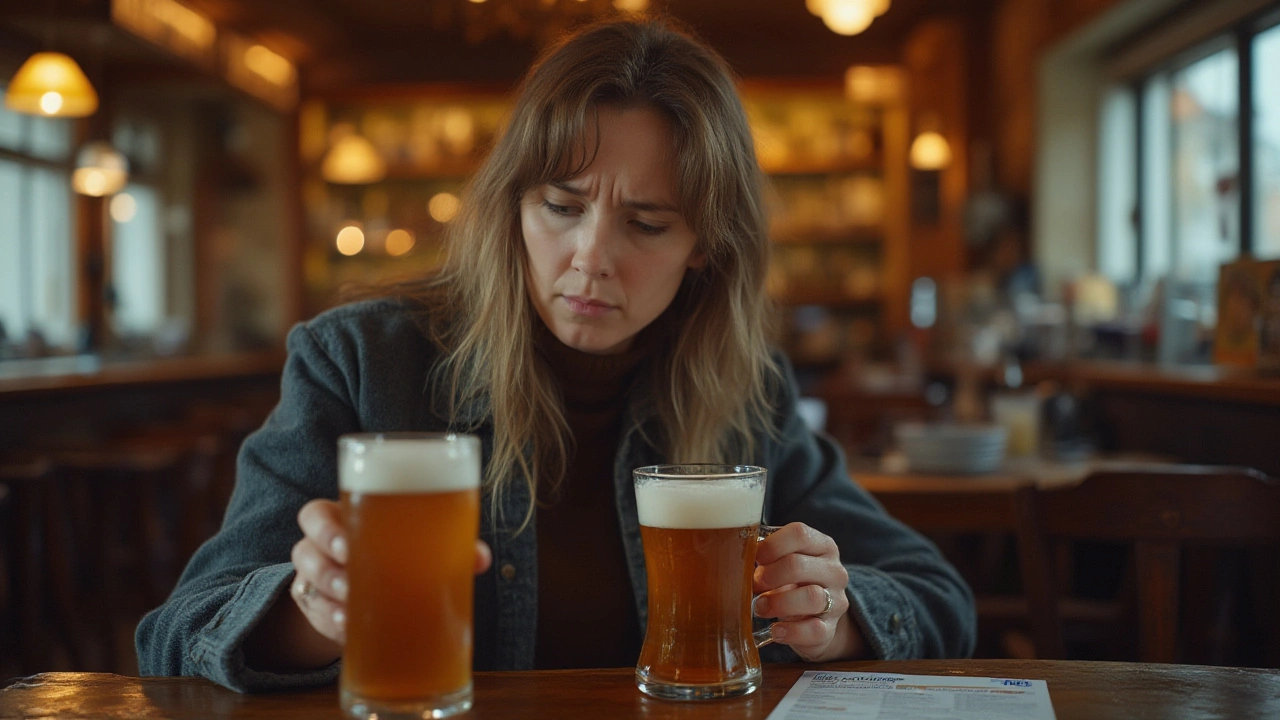Drinking while on diuretics like spironolactone is more dangerous than you might think. This guide explains the real risks, from dehydration to potassium spikes.
Dehydration: Signs, Treatment, and Prevention
Dehydration happens when your body loses more fluid than you take in. That sounds simple, but it sneaks up fast — after a hot day, a bout of vomiting or diarrhea, or when a medication increases urine output. Knowing early signs and quick fixes can stop it before you feel awful.
Who’s at higher risk? Young kids, older adults, people exercising hard, and anyone on diuretics like furosemide (Lasix) or certain blood pressure drugs. If you care for infants or older relatives, watch fluid intake closely during heat and illness.
Recognize dehydration fast
Look for dry mouth, intense thirst, dark yellow urine, reduced urine output, and tiredness. Children may be cranky, refuse drinks, or have fewer wet diapers. More serious signs include dizziness, rapid heartbeat, low blood pressure, sunken eyes, little to no tears, confusion, or fainting. If you see those, treat immediately and get medical help.
Treat and prevent dehydration
For mild dehydration, drinking regularly is usually enough. Sip water, oral rehydration solutions, or a sports drink with electrolytes. Homemade ORS works: mix 1 liter of clean water with 6 level teaspoons of sugar and ½ teaspoon of salt. Drink small amounts often — a cup every 15–20 minutes — rather than huge gulps that can upset the stomach.
For children, offer small sips frequently. If a child vomits, wait 10 minutes and try again with small amounts. For adults, aim to replace lost fluids over a few hours — roughly 1 to 2 liters for mild cases. Avoid alcohol and limit caffeine until you recover, since they can increase fluid loss.
Heat and exercise planning prevents trouble. Start hydrating before activity, carry a bottle, and choose electrolyte drinks for long workouts. Wear light clothing, take breaks, and move activities to cooler times of day when possible.
Check medications you take. Diuretics, some antihypertensives, and laxatives can raise dehydration risk. Talk to your clinician if you feel unusually thirsty or dizzy after starting a new drug. If you use vitamin D analogs or treatments affecting calcium, ask whether fluid balance matters for your situation.
When to see a doctor: if you can’t keep fluids down, have prolonged diarrhea or vomiting, show severe symptoms like confusion or fainting, or if infants and older adults have very low urine output. Emergency care may include IV fluids and electrolyte correction.
Travel, camping or long flights raise risk because you may delay drinking. Pack sachets of oral rehydration salts or a sports drink powder. If you have diabetes or heart failure, check with your clinician before using high-salt ORS. Athletes should replace both fluids and salts after heavy sweat; a bottle with 300–600 mg sodium per liter helps during long sessions. Weigh yourself before and after exercise to track fluid loss.
Small routine habits help: sip water through the day, eat water-rich foods like cucumbers and watermelon, check urine color as a quick gauge, and carry an ORS powder or ready-made solution when traveling. A little attention prevents a lot of discomfort.

